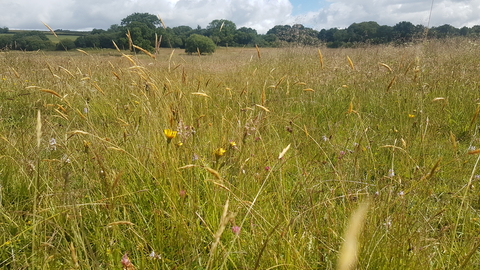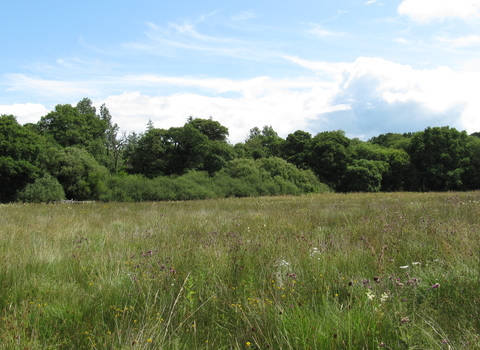
Andrew Taylor
Speccott Moor
PLEASE NOTE THIS IS A CLOSED SITE WITH NO PUBLIC ACCESS EXCEPT DURING ORGANISED EVENTS.
Know before you go
Dogs
When to visit
Opening times
This is a closed site.Best time to visit
This site is closed outside of specially arranged events.About the reserve
Speccott Moor, in a beautiful and remote part of north Devon, is a stunning area of Culm grassland: very rare, species-rich wet meadow that is home to some of our most threatened wildlife.
It is surrounded by woodlands, and the flower rich meadows are interspersed with pockets of scrub and wet flushes and cut across by little streams. Snipe, reed bunting, grasshopper warbler and other wetland loving birds are frequently spotted, and in spring and summer it becomes a riot of colour and buzzing insects, with the rare marsh fritillary butterfly breeding on the site.
This habitat is a real Devon speciality and of international conservation importance, but only tiny fragments remain following decades of agricultural improvement, mining for ball clay, neglect and unsympathetic conifer planting.
This site won’t be open to the public, but will be a rich source of rare, native grassland seed which will be harvested and used to enhance and create more wildflower meadows. The purchase of this nature reserve was only made possible thanks to the generosity of supporters, including those that have been kind enough to leave us a gift in their Will.
Ash dieback
The disease ash dieback is now widespread in the UK and is present at many of our nature reserves, so we carry out tree felling across our sites in winter months. For your own safety please observe temporary path diversions and closures.
Where possible we will leave affected ash trees in place to decay naturally as an important habitat for wildlife. We plan to only fell diseased ash trees which pose a threat to people or infrastructure. Before trees are felled, we will check whether any rare or protected wildlife is present. If it is, we will postpone or avoid felling these trees. No felling will take place during the bird nesting season.
DWT’s Saving Devon’s Treescapes project are working with communities, landowners and businesses to help make Devon's precious treescapes more resilient in the face of ash dieback. Find out how you can get involved here.
NOTICE: If you are visiting our reserves, please note that there have been instances of H5N1 Avian bird flu found in birds in Devon. There is very low risk to public health, but we do ask that if you come across any unusual or unexplained bird deaths on or near our reserves, please do not touch them and avoid allowing your dog to come into contact with dead birds. Please report them to Defra here or call 03459 335577 and also report your findings to DWT by email at contactus@devonwildlifetrust.org.





